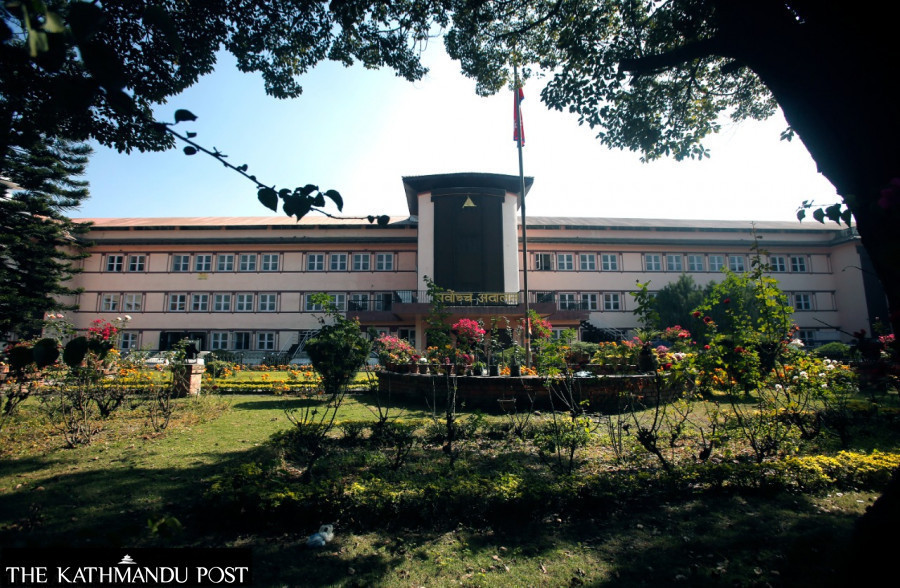National
CSR must benefit the poor, not private interests, says Supreme Court
The court has ordered the government to table an integrated corporate social responsibility bill in Parliament within two months.
Post Report
Amid growing concerns over the improper use of corporate social responsibility (CSR) funds, the Supreme Court has directed the government to formulate and register an umbrella bill in Parliament within two years to regulate CSR activities more effectively.
Currently, the Industrial Enterprises Act governs CSR in industries, while Nepal Rastra Bank has set rules for banks and financial institutions. Banks and financial institutions must allocate one percent of their net profit for CSR and spend it on the prescribed activities.
However, the division bench of justices Hari Phuyal and Nripa Dwoj Niroula has found it necessary to have an integrated law to streamline CSR activities. “The Ministry of Law, Justice and Parliamentary Affairs is directed to register an integrated bill in the legislature within two months of this verdict, focusing on the use of CSR funds to eradicate poverty,” reads the full text of the verdict from December 2, 2024, released on Monday.
The division bench has concluded that CSR allocations should not be spent on large development projects, but rather on uplifting the poor, underprivileged, and targeted groups, in line with the core objectives of CSR. The court has directed the authorities concerned to make necessary arrangements to ensure that such funds are used in ways that directly benefit the population living below the poverty line and contribute to alleviating extreme poverty in the country.
According to the Nepal Living Standards Survey, 20.27 percent of the population lives below the poverty line. The Supreme Court has instructed that CSR funds must be spent on housing, education, health, children, and women's empowerment, specifically targeting communities living in extreme poverty. Even if infrastructure is to be built, it must directly benefit such communities, it says.
“If there are specific settlements where these communities reside, arrangements must be made to promptly utilise CSR funds for infrastructure development, such as private toilets, bathing facilities, and other areas necessary for a minimally dignified human life,” reads the order.
Similarly, the court has instructed that the funds should be used through social institutions established to protect the rights of communities living below the poverty line, advocate their policy and legal interests, and enhance their capacity to engage in dialogue with the state.
The top court has further warned that any misuse or diversion of CSR funds in areas other than poverty alleviation will lead to action against those responsible. If the funds are spent on the employees of banks or financial institutions, appropriate measures should be taken to promote accountability and responsibility, as per the rulings. Until the new law is in place, the Phuyal-led bench instructed the government and the Nepal Rastra Bank to ensure that the funds are spent properly.
It has asked the Ministry of Industry, Commerce, and Supplies to monitor and take action regarding whether industries are spending their CSR funds towards poverty alleviation.
Legal experts say the judgment transforms CSR from a kind of charity to a legally enforceable obligation directly linked to realising economic, social, and cultural rights (ESCR), including poverty alleviation.
The court has made it clear that misuse or misappropriation of CSR funds will no longer go unpunished and now carries clear accountability, they said.
“Most importantly, it has directed the government to enact comprehensive umbrella legislation on corporate social responsibility, applicable across all business sectors. This is not just a jurisprudential milestone, but a strong reminder that businesses are not exempt from their human rights obligations,” said senior advocate Raju Prasad Chapagain. “The verdict warrants prompt and full implementation.”




 10.12°C Kathmandu
10.12°C Kathmandu














